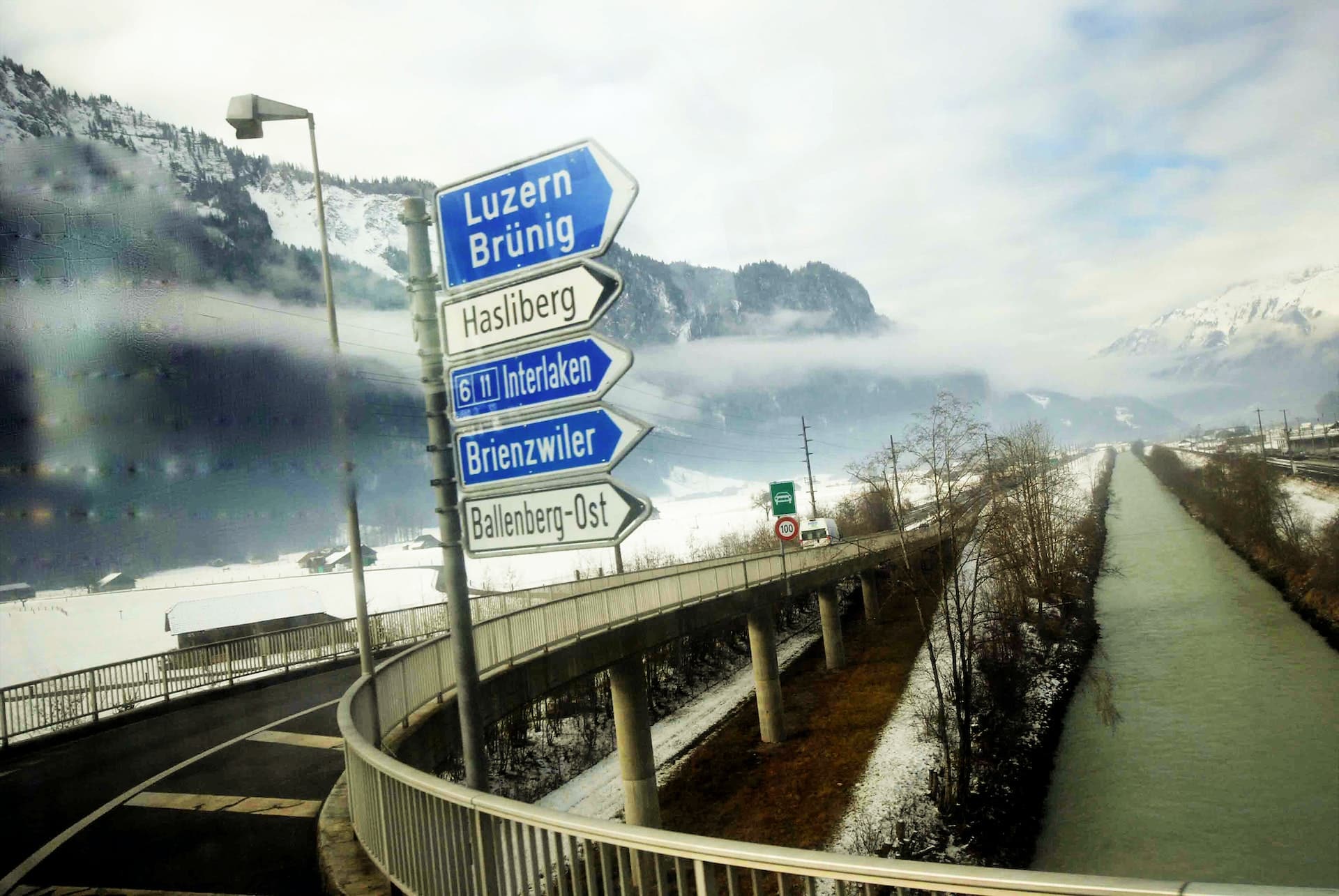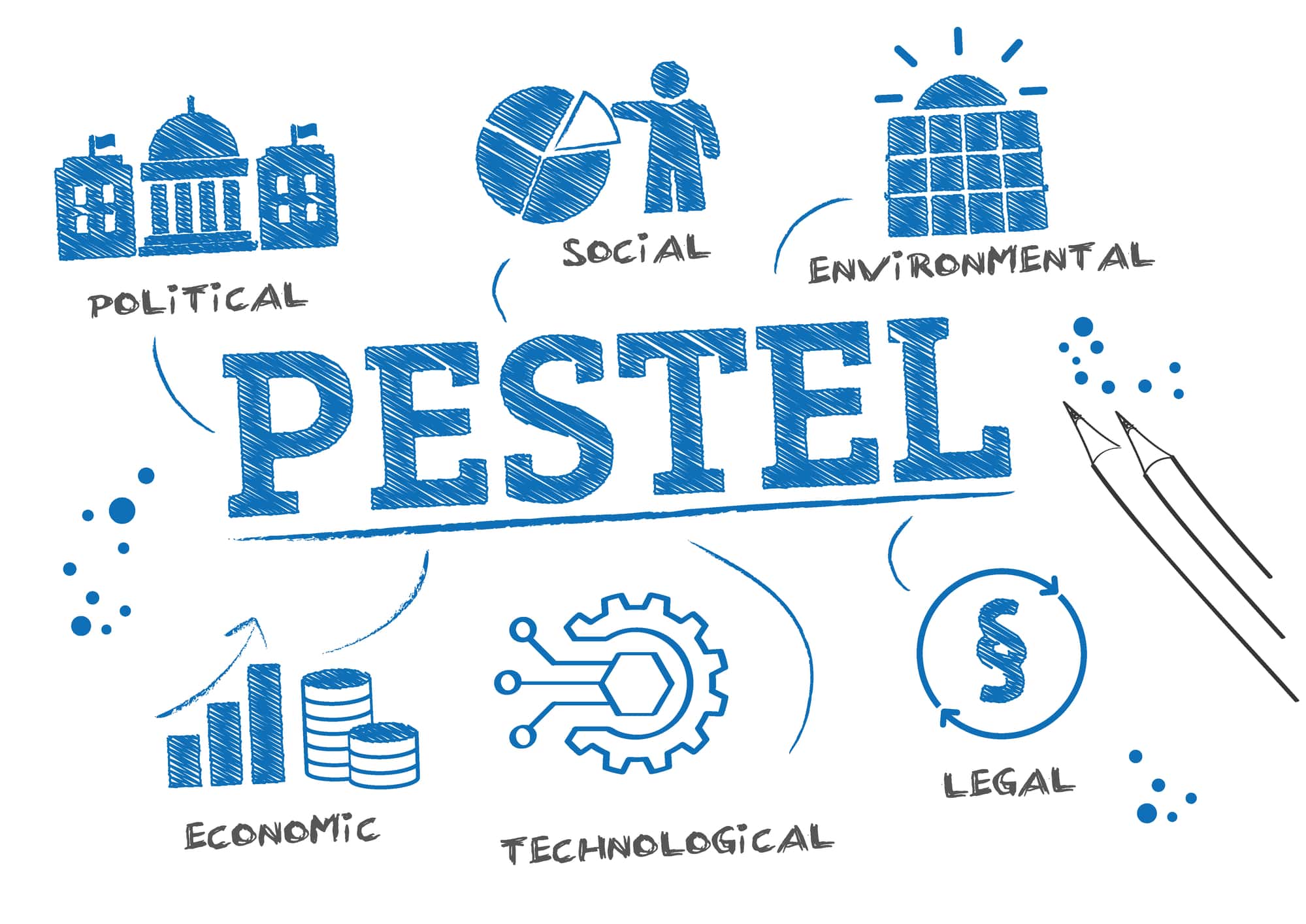Our PESTLE Analysis of Switzerland examines the political, economic, social, technological, legal and environmental factors affecting the country.
Have you ever imagined yourself roaming around in the thick forests of Switzerland? Or having an adventure climbing its high peaks covered with snow?
If yes, then this article is for you! In this article, we will analyze the history of Switzerland and then conduct a PESTLE Analysis of Switzerland to analyze what external factors impact Switzerland.
Switzerland is a country that has one of the highest mountain peaks and a lot of natural sites. Tourists from all over the world visit Switzerland to witness its scenic beauty.
Besides that, Switzerland's culture attracts a lot of tourists. Switzerland is a country that has a rich history and culture. The roots of Switzerland can be traced back to the Roman Empire. Switzerland remained a part of the Roman empire from the 1st century B.C. till the 4th century A.D.

In that era, Switzerland experienced development. Some of the basic infrastructure, such as roads, was built in that era since Switzerland was considered important due to its geographical position by the Romans.
After the era of the Roman Empire ended, Switzerland was invaded a couple of times by the northern and western tribes. Later, Switzerland came under the rule of the Holy Roman emperors.
Switzerland went through several wars between Swiss Confederates and entities that challenged their right to self-determination. Finally, in 1499, the Swiss Confederates gained independence from the Holy Roman Empire.
After that, Switzerland went through nearly two centuries of civil unrest. However, the Swiss Confederation remained intact. Moreover, since Switzerland is located in the center of Europe, it had been assumed that it would resist revolutionary France.
However, Switzerland remained neutral at that time. Although later, Napoleon invaded Switzerland and annexed it in 1797-98, so Switzerland lost some of its states.
The Congress of Vienna restored the old Switzerland by rejoining its old states, declaring it permanent armed neutrality under international law in 1815. In 1848 Switzerland witnessed a civil war between Protestant liberals and Catholic conservatives.
The liberals demanded a federal state modeled on the constitution of the U.S. In contrast, the conservatives thought that clinging to the old system was the right thing to do. As a result, Switzerland amended its constitution immensely in 1874.
The constitution stated that the armed forces, trade, and laws were federal responsibilities. Moreover, it also introduced direct democracy, which brought political stability. Later in the 9th century, Switzerland experienced the industrial revolution. As a result, it was considered the second most industrialized country in Europe after Britain.
In both World Wars, Switzerland came under great pressure to choose sides. However, it remained neutral. Since then, Switzerland has always talked about peace and has never gotten involved in conflicts. This role of Switzerland has always been commendable.
Switzerland's neutrality in conflicts has played a significant role in its social and economic development. Currently, Switzerland is considered one of the safest countries across the globe.
Furthermore, it is also considered a prosperous state. Switzerland is considered one of the top 10 countries with the highest GDP per capita.
Now that we have discussed Switzerland's history let's examine how various external factors impact Switzerland. To do that, we have to conduct the PEST analysis of Switzerland.
PESTLE analysis highlights how various external factors impact any business, industry, or country. Now that you know what a PESTLE analysis is, let's proceed and conduct a PESTLE analysis of Switzerland.

Political Factors That Affect Switzerland
Various political factors impact the operations of any country. In this section of the PESTLE analysis, we will examine how different political factors impact Switzerland.
Political stability is considered one of the factors that positively impact Switzerland. Since Switzerland made its constitution in 1874 and introduced direct democracy, there has been political stability.
This political stability has helped the country attract foreign direct investments that caused an inflow of dollars and provided employment to the country.
Moreover, political stability paved the way for the Swiss tourism industry. Tourists always look forward to visiting a politically stable country. In 2021, Switzerland generated $39 billion through its tourism industry.
Besides that, the policies of the Swiss government impact Switzerland greatly. One of the commendable policies of the Swiss government is to remain neutral in global conflicts. Switzerland remained neutral during both World Wars.
As a result, when Europe was bombed and invaded, Switzerland focused on development, which is why it is among the most developed countries.
Other than that, the trade policies of the government have a great impact on Switzerland. The Swiss economy is deeply linked to countries worldwide. It trades with all the major countries.
The Swiss government has relaxed trade policies. Switzerland has 30 trade agreements with 40 countries, which makes it a highly integrated economy.

Economic Factors That Affect Switzerland
Economic factors hold great significance since they play an essential role in determining the position of a country on a global scale. Therefore, this section will reveal how various economic factors impact Switzerland.
Inflation plays an important role in determining people's living standards within society. Moreover, high inflation levels also cause social instability as they give birth to various crimes.
Switzerland has experienced healthy inflation for decades. The inflation rate has been under 6% since the 1990s. Due to this, the living standard of Swiss nationals has been maintained. Hence, the crime rate in the country has been under control.
Moreover, an economy's interest rates impact spending and investment levels significantly. The interest rates in the Swiss economy have been very low. The highest interest rate level was recorded in 2000, at 3.5%.
Such low-interest rates motivate people to spend, increasing economic activity. Moreover, it is easy for investors to borrow money from banks at such low-interest rates. Hence, low-interest rates in the Swiss economy encourage investors to invest.
Besides that, a stable exchange rate is very important for a prosperous economy. The exports and imports of a country are highly volatile due to exchange rate fluctuations. This is why Switzerland needs to have a stable exchange rate.

Social Factors That Affect Switzerland
Social factors play a vital role in impacting a country. Let's discuss how different social factors affect Switzerland.
The population is one factor that plays a significant role in shaping an economy. A high population can benefit the economy if proper training and resources are provided. China and India are prime examples of how large populations can be used to lift economies.
Switzerland is a country with high resources, but it doesn't have a large population. The population of Switzerland is 8.8 million. It might have been a leading economic power if it had a large population.
Besides that, the literacy rate plays a significant role in determining a country's current situation and fate. Switzerland is among the few countries with the highest literacy rate. Almost 99% of Switzerland's population is literate.
This means the majority of the labor in Switzerland is educated. An educated workforce proves to be very beneficial for an economy. Literate workforce It is more efficient, adaptive, and competitive. Hence, it helps an economy grow.
Furthermore, social and cultural values are important in shaping an economy. For example, people in Switzerland are considered conservative and are not open to providing equal rights to women.
In a survey, only 39% of women in a sample of 3000 said that they wanted the same rights as men. Such a conservative approach can impact Switzerland's reputation worldwide.

Technological Factors That Affect Switzerland
Technological factors impact countries significantly. This section of the PESTLE analysis examines how technology and innovation impact different countries. So let's proceed and look at how different technological factors impact Switzerland.
R&D is one of the sectors responsible for innovation in a country. Switzerland has a very well-developed R&D sector. The latest research published by the Swiss R&D institutions is causing Switzerland to advance technologically.
Moreover, artificial intelligence has taken the world by storm. Therefore, Switzerland has an opportunity to embrace A.I. and incorporate it into various industries. By doing so, Switzerland will become less dependent on human labor.
Besides that, internet penetration plays a significant role in impacting a country. The Internet impacts a country in various ways. The Internet raises awareness among people, which is very important for any country. Moreover, it provides a platform for people to earn money online.
This causes unemployment in the economy to fall, and people's living standards in the country start to improve.
Other than that, e-commerce platforms also impact any country. It provides options for people to shop online globally. This creates a challenge for local retailers to compete globally in terms of price and quality. Hence, e-commerce may have an adverse impact on domestic retailers.

Legal Factors That Affect Switzerland
Constitutions and laws made by legislators impact any country significantly. Let's take a look at how various legal factors impact Switzerland.
Labor laws have a great impact on the level of employment in the economy and the level of job satisfaction among laborers. Therefore, labor laws have a great impact on the Swiss economy. Labor laws that ensure labor rights and prohibit discrimination motivate laborers. Hence, the productivity in the economy increases.
Suppose the government makes ineffective labor laws in Switzerland. In that case, the productivity of labor would fall. Moreover, they could result in protests from the laborers, leading to civil unrest.
Moreover, laws that encourage competition among businesses impact Switzerland. If these laws didn't exist, markets would have one or two major companies dominating the entire market. As a result, efficiency and productivity would fall.
Besides that, Switzerland is a country that has significant internet penetration. However, the government is responsible for protecting the data of internet users. For that, Switzerland needs effective data protection laws.
In the case of data breaches, people might start abandoning the Internet, which could impact the Swiss economy negatively.

Environmental Factors That Affect Switzerland
The environment plays a major role in impacting any country, so countries are now paying attention to the environment. Let's analyze how various environmental factors impact Switzerland.
Natural disasters cause economic loss and the loss of human lives. However, as climate change occurs, the frequency of natural disasters has increased significantly. Therefore, the occurrence of natural disasters has an adverse impact on Switzerland.
Firstly, natural disasters cause the loss of infrastructure, which causes inconvenience for the people. Secondly, the occurrence of natural disasters in Switzerland would also create fear among tourists. Hence, the tourism industry of Switzerland would decline.
Other than that, as the focus on clean energy increases, Switzerland can produce clean energy by using its water bodies. Moreover, Switzerland is a rich country, so it has the resources to adopt other ways of producing clean energy, for example, through wind and sunlight.
By increasing its clean energy production, Switzerland can improve its reputation and become an example for other countries.

PESTLE Analysis of Switzerland: Final Word
Switzerland is a country full of scenic beauty and resources. The country has a deep history of overcoming social unrest and developing its first constitution, which helped its development.
Switzerland has always been an advocate of peace. It has never been involved in any conflict. In World War I, when the entire continent was a party to it, Switzerland maintained its neutral stance and focused on the prosperity of its people.
In this PESTLE analysis, we took a look at different external factors that impact Switzerland. The PESTLE analysis framework helped us look at different political, social, environmental, legal, technological, and economic factors that impact Switzerland.
We hope you enjoyed reading this article since it gave you insight into Switzerland. However, if you are interested in reading similar articles, look at some PESTLE analysis examples.


